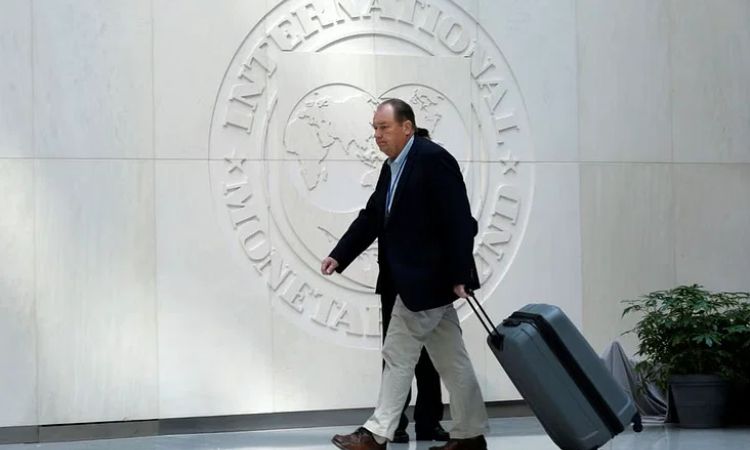The International Monetary Fund (IMF) announced on Friday that it has reached a staff-level agreement with Argentina, allowing the country to access about $7.5 billion and complete the fifth and sixth reviews of its $44 billion loan program. However, the agreement is subject to approval by the IMF Executive Board, which is scheduled to meet in the second half of August.

Challenges Faced by Argentina
The IMF (International Monetary Fund) recognized the significant economic challenges faced by Argentina, primarily due to a devastating drought that has severely impacted the country’s exports and fiscal revenues. As a result, some of the financial targets for the end of June were missed. Additionally, policy slippages and delays contributed to strong domestic demand and a weaker trade balance, further exacerbating the economic situation.
Measures Outlined in the Agreement
To support Argentina’s peso currency, the agreement stipulates that policy interest rates must remain “sufficiently positive in real terms.” The country is projected to accumulate reserves at a more gradual pace, with a target of approximately $1 billion by the end of 2023, in contrast to the previous goal of $8 billion set in March.
To control import demand, the agreement calls for the implementation of new foreign exchange taxes on imported goods and the strengthening of expenditure controls. However, the primary fiscal deficit target for 2023 remains unchanged at 1.9% of GDP.
Challenges with Currency Reserves
Argentina has been facing difficulties with its currency reserves, prompting the introduction of multiple peso exchange rates to prevent further depletion. These measures, however, go against the IMF’s guidelines, and the program will require waivers to accommodate them.
Prior Actions and Review Schedule
Before the board’s approval, the Argentine government needs to take additional measures known as “prior actions.” The next review is expected to be conducted in November, a month earlier than originally planned. The IMF statement did not provide details on the subsequent three reviews of Argentina’s 2022 program, scheduled for September 2024.
Upcoming Presidential Primary Vote and Market Response
Economy Minister Sergio Massa is set to participate as one of the presidential candidates in the primary vote on August 13 as part of the ruling coalition. The IMF’s board approval of the reviews will follow this primary vote. The announcement of the staff-level agreement had a positive impact on Argentina’s financial markets, with over-the-counter sovereign debt rising nearly 2% on average, and the main stock index gaining 1.68%.
Upcoming Debt Maturities and Financing Efforts
Argentina still faces the challenge of avoiding a default with the Fund, with debt maturities of $2.6 billion due on July 31 and almost $800 million due on August 1. The country is working to secure financing from various sources to meet these obligations, including a $1 billion credit approved by the Development Bank of Latin America (CAF) on Friday evening. Another potential option is a swap line with Beijing, a measure previously utilized by Argentina to complete part of its June payment to the IMF.















